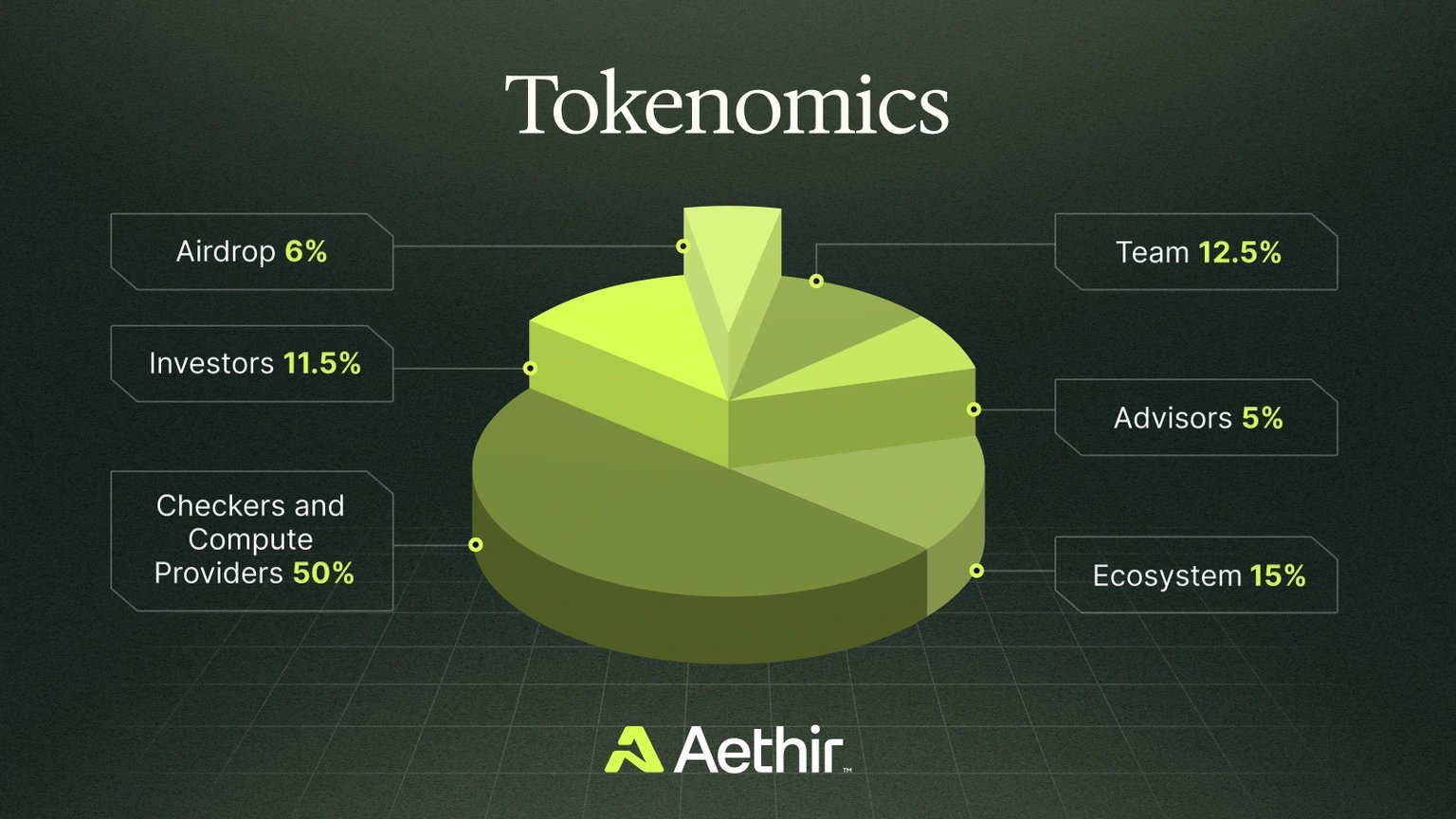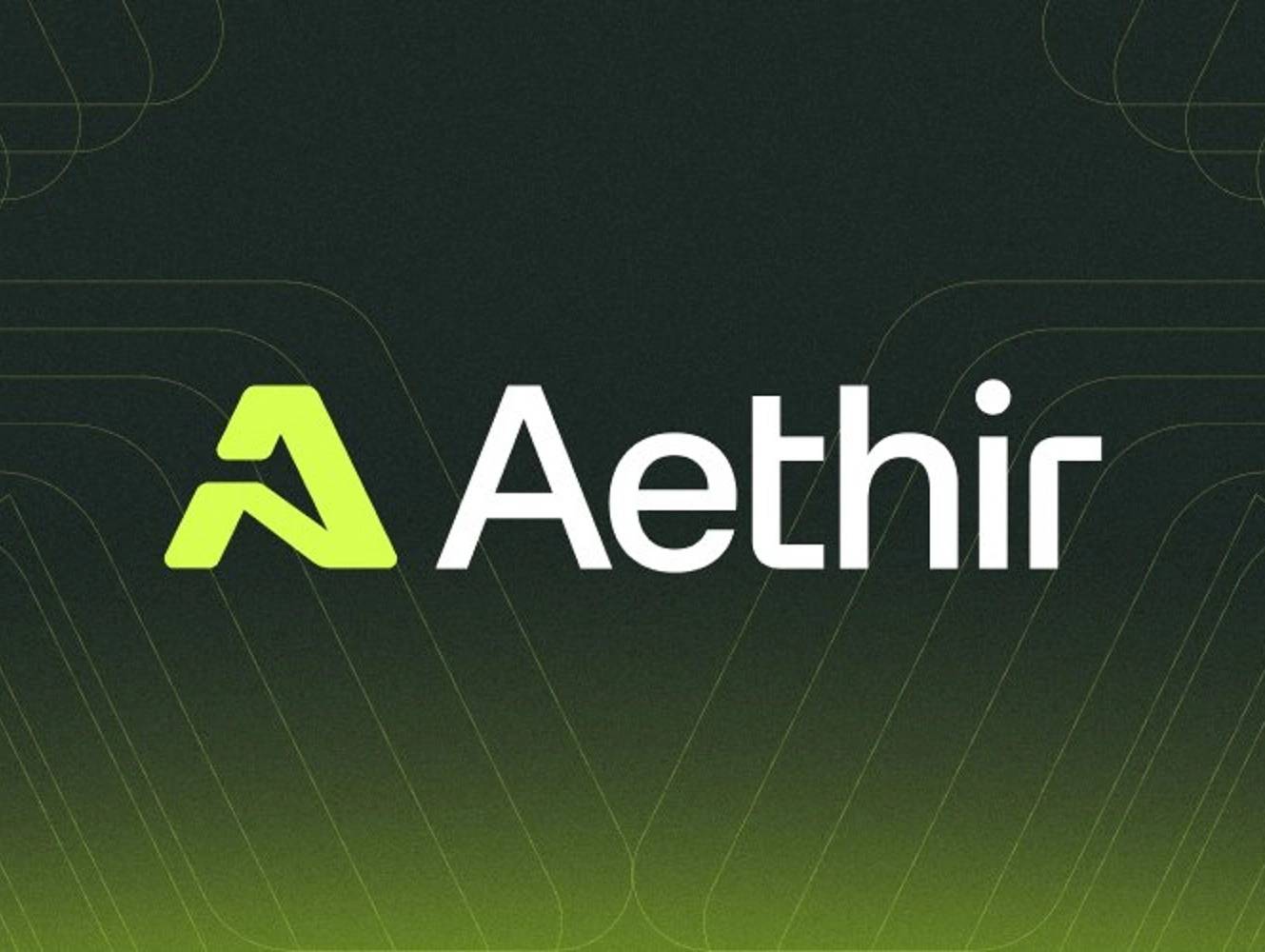Subscribe to wiki
Share wiki
Bookmark
Aethir
The Agent Tokenization Platform (ATP):Build autonomous agents with the Agent Development Kit (ADK)
0%
Aethir
Aethir is a blockchain-based platform offering distributed cloud compute infrastructure with a focus on gaming and artificial intelligence (AI) applications. The platform provides access to globally distributed enterprise-grade GPUs, designed to deliver secure and cost-effective computational resources. [1][2][4]
Overview
Aethir operates as a decentralized cloud computing network, providing on-demand access to high-performance computing resources through a globally distributed network of GPU providers. Its primary focus is to meet the increasing demand for GPU compute power, particularly in sectors such as artificial intelligence (AI) and cloud gaming. Aethir’s network spans 22 countries, positioning GPU resources closer to end users to reduce latency and enhance overall performance.
The platform is designed to address the growing computational needs driven by advancements in AI and the anticipated development of Artificial General Intelligence (AGI). The demand for GPU resources is increasing rapidly, particularly in AI, leading to competition among governments and technology companies to secure these resources. This has resulted in a disparity between entities with substantial resources and those relying on centralized cloud computing services.
To tackle this issue, decentralized physical infrastructure networks (DePINs) like Aethir offer an alternative. Aethir aggregates underutilized GPU resources from various industries, including data centers, telecom companies, gaming studios, and crypto mining operations, into a unified network. This increases the availability of affordable, on-demand compute power for AI training, inference, real-time rendering, and other compute-intensive applications.
Aethir’s infrastructure offers key features that differentiate it from centralized cloud services, including access to enterprise-grade computing resources, low latency for real-time applications, scalability through its distributed model, and cost-efficient operations. The decentralized ownership model also allows resource owners to retain control of their assets while contributing to the network.
The platform supports both AI applications through its Aethir Earth division and cloud gaming via Aethir Atmosphere, offering versatile solutions for industries that require high-performance computing. Aethir’s real-time rendering capabilities are particularly relevant for cloud gaming, providing low-latency experiences across different regions without the need for high-end hardware.
As part of its decentralized infrastructure, Aethir leverages Web3 technology to track resource consumption and reward participants. Resource providers are compensated with Aethir’s native token, ATH, while blockchain technology ensures transparency and accurate allocation of rewards based on resource usage. The network operates with three main roles: Containers (where resources are utilized), Checkers (which ensure performance and integrity), and Indexers (which match users with suitable resources).
Aethir employs a Web3-based decentralized governance system, which allows its community of token holders to actively participate in key decision-making processes. Through a tokenized voting mechanism, participants can propose and vote on changes to the platform, ensuring that upgrades, network adjustments, and future developments reflect the interests of the broader user base. This model promotes transparency and democratic participation, enhancing both the network’s adaptability and trustworthiness as it grows.
Aethir’s decentralized cloud computing network supports a range of applications, including AI model training, AI inference, cloud gaming, and other high-performance compute tasks, offering a scalable and cost-effective solution for industries that require advanced computational resources. [1][2][4][13][14]
Technology
Aethir Earth
Aethir Earth is a decentralized cloud computing infrastructure that offers access to bare metal GPU resources for machine learning tasks and artificial intelligence (AI) applications. This infrastructure employs a distributed network of GPU providers, which allows for scalability and flexibility in handling compute-intensive workloads.
The platform provides direct access to hardware resources, eliminating the overhead typically associated with virtualization. This design is intended to improve performance for tasks such as AI model training and the execution of complex algorithms. Aethir Earth comprises a global network of GPU servers, enhancing the availability and reliability of computational resources.
The infrastructure of Aethir Earth is tailored to support modern machine learning applications, facilitating the execution of intensive workloads while prioritizing security and transparency. The decentralized framework is designed to mitigate risks associated with centralized points of failure, thereby creating a secure environment for providers and users.
Integration into Aethir Earth is designed to be efficient, enabling providers to add and configure GPU resources with relative ease. Users can deploy their workloads with minimal setup, maximizing the utilization of the network. The participation of providers in Aethir Earth contributes to a collaborative environment that supports advancements in machine learning and AI technologies.
Overall, Aethir Earth seeks to advance high-performance computing through the use of a decentralized network of bare metal GPUs, aiming to provide reliable and efficient solutions for computationally demanding applications.
Aethir Atmosphere
Aethir Atmosphere is a decentralized GPU infrastructure designed for cloud gaming. It aims to provide low-latency access to GPU resources by employing edge computing techniques to reduce delays and optimize performance for gaming applications.
The infrastructure operates on a decentralized network of rendering containers supplied by GPU Compute Providers worldwide. This architecture is intended to create a scalable environment that addresses the requirements of modern gaming.
Aethir Atmosphere offers real-time rendering capabilities, allowing high-quality gaming experiences without the need for powerful local hardware. This design enables broader access to gaming applications. The platform utilizes containerized GPU resources to enhance the rendering process. These containers create isolated environments for rendering tasks, which can lead to efficient resource usage and consistent performance across various gaming applications.
The decentralized structure of Aethir Atmosphere is supported by a diverse array of GPU providers, which may improve the availability and reliability of rendering services. This geographic distribution is aimed at facilitating low-latency gaming experiences for users, regardless of location.
The infrastructure is optimized to meet the specific demands of cloud gaming. It supports contemporary gaming technologies and is capable of handling complex rendering tasks. The decentralized architecture of Aethir Atmosphere allows for scalability and flexibility. As service demand increases, additional rendering containers can be added to the network to manage growing workloads.
The platform incorporates decentralized governance and security measures, designed to mitigate risks associated with centralized points of failure and to maintain the integrity of rendering tasks. Game developers can integrate their applications with Aethir Atmosphere, utilizing the platform’s rendering capabilities. The setup process is designed to be straightforward, enabling developers to focus on their gaming applications while the platform manages rendering.
In conclusion, Aethir Atmosphere provides a decentralized, scalable rendering solution for cloud gaming. By leveraging a global network of rendering containers, the platform aims to enhance access to high-quality gaming experiences. [1][3][8][9]
Use Cases
- AI Model Training: Aethir's infrastructure provides scalable compute resources necessary for AI model training. As AI systems evolve and require more computational power, Aethir's platform offers access to distributed GPU networks that support large-scale training of AI models, including advancements toward AGI.
- AI Inferencing: AI inferencing, which involves processing data to generate conclusions, relies on low-latency compute power. Aethir’s distributed infrastructure is designed to deliver real-time, low-latency processing, enabling the execution of tasks in areas such as autonomous driving and traffic management.
- Cloud Gaming: Aethir offers cloud gaming solutions by providing access to distributed GPU resources, allowing users to play on various devices without the need for high-end local hardware. This approach expands access to gaming by removing hardware barriers.
- Cloud Phone: Aethir enables mobile devices to leverage cloud-powered compute resources, enhancing the performance of low-end smartphones by offloading intensive tasks to the cloud. This allows advanced applications to run on devices with minimal local hardware requirements.
- AI Productization: As AI products grow in complexity, real-time rendering and inferencing become essential for applications like virtual work agents. Aethir's infrastructure supports these compute-intensive processes, facilitating the deployment of AI-driven products that require substantial computational resources. [13][10]
Tokenomics
The ATH token is not only used for payments and governance but also enables staking. The infrastructure supports scalability and security using smart contracts on Ethereum and as a method of payment for computing services within the platform.[1][5]

GPU Provider Program
Aethir enables individuals and organizations to participate in its GPU provider network. The program offers the potential for scalability, as providers can add more servers to the network. The decentralized nature of the platform also emphasizes security for contributors.[1][7]
Partnerships and Ecosystem
Aethir has formed several collaborations and initiatives to enhance its infrastructure, focusing on addressing GPU availability and improving scalability.
One of the platform’s key partnerships is with the Filecoin Foundation. This collaboration seeks to mitigate the global GPU shortage, a growing concern within the artificial intelligence (AI) and Web3 sectors. By integrating Aethir’s GPU leasing services with Filecoin’s decentralized storage network, the partnership creates a more comprehensive infrastructure that supports both computational and data storage requirements. Mark Rydon, Aethir’s Chief Strategy Officer, noted that traditional systems are facing challenges in meeting increasing demands, and Filecoin’s storage network provides a scalable solution that complements Aethir’s decentralized GPU cloud infrastructure. This collaboration aims to offer a secure and scalable approach to managing large volumes of data.
In addition to addressing GPU shortages, the partnership emphasizes maintaining a balance between computing power and data storage, crucial for avoiding centralized vulnerabilities. Aethir is also focused on enhancing AI-driven data security, utilizing node-focused data managed through Filecoin’s decentralized storage system to support substantial computing and storage tasks.
Aethir has also partnered with Auros to improve the transaction efficiency of its native ATH token, further optimizing the platform’s operational capabilities. In addition, Aethir introduced community rewards programs designed to incentivize participation within its network.
In June 2024, Aethir launched its decentralized cloud computing network on the Ethereum mainnet. This launch enables the contribution of idle GPU resources to its GPU-as-a-service platform, allowing developers and enterprises to rent computing power to perform tasks such as AI model training and large-scale digital content rendering, thereby expanding the platform’s usability. [1][6][12]
Founders and Board Team
The team behind Aethir includes experienced professionals from various industries:
- Daniel Wang, Cofounder & CEO, brings experience from roles in the gaming and Web3 industries, including at Riot Games.
- Mark Rydon, Cofounder & CCO, has held leadership positions in companies across multiple sectors, including Web3 and cloud computing.
- Kyle Okamoto, CTO, has a background in telecommunications, having served in leadership roles at Ericsson and Verizon Media.
- Paul Thind, CRO, has co-founded and advised several companies, particularly in digital marketing and Web3 sectors. [1][7][10]
See something wrong?
The Agent Tokenization Platform (ATP):Build autonomous agents with the Agent Development Kit (ADK)
